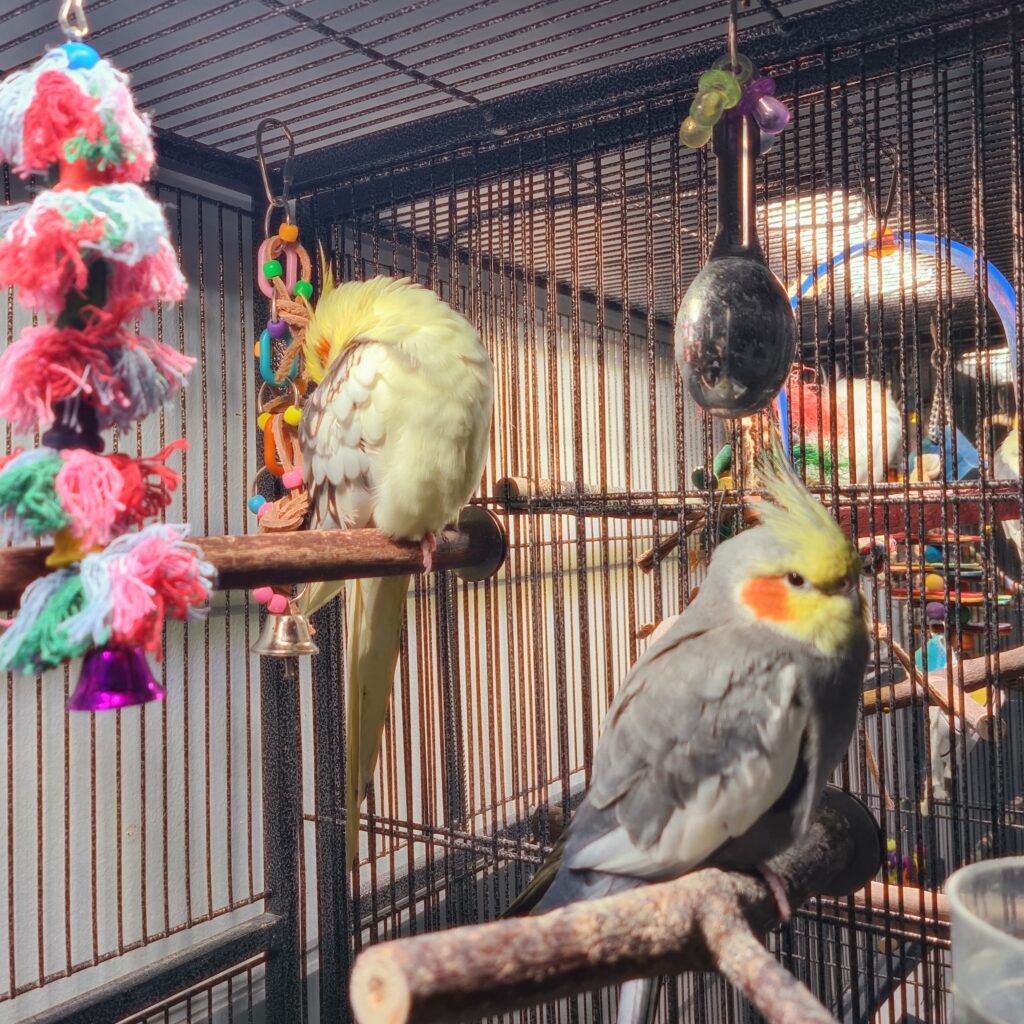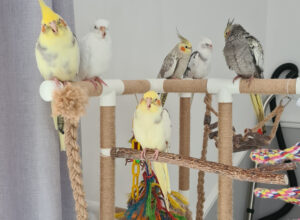Cockatiel Sleep Patterns and Needs: An Owner's Guide
Key Takeaways
- Understand the importance of sleep for your cockatiel’s health and well-being.
- Learn how to create an ideal sleeping environment for your feathered friend.
- Discover the typical sleep patterns of cockatiels and how to ensure they get enough rest.
- Gain insights into addressing sleep-related challenges common among cockatiels.
As a devoted cockatiel owner and enthusiast, I’ve spent countless hours observing and learning about the unique needs of these charming birds. One of the most critical, yet often overlooked, aspects of cockatiel care is understanding their sleep patterns and needs. Proper sleep is essential for a cockatiel’s health, impacting everything from their mood to their immune system.
The Importance of Sleep for Cockatiels
Cockatiels require about 12-14 hours of darkness and sleep per night to maintain optimal health and well-being. This requirement can vary slightly depending on the individual bird and its environment. A lack of sufficient rest can lead to a host of issues, including stress, irritability, and a weakened immune system.
Creating an Ideal Sleeping Environment
To ensure your cockatiel gets a good night’s sleep, consider the following tips for setting up the perfect sleeping environment:
- Location: Place the cage in a quiet, low-traffic area of your home to minimise disturbances. Learn more about setting up a cockatiel cage effectively.
- Lighting: Cockatiels are sensitive to light and require dark, quiet conditions to sleep well. Use a cage cover to block out light and provide a sense of security.
- Temperature: Keep the room at a comfortable temperature, avoiding drafts and direct sunlight. The ideal temperature range for cockatiels is between 18°C to 24°C.
Understanding Cockatiel Sleep Patterns
Cockatiels naturally follow a diurnal sleep pattern, meaning they are active during the day and sleep at night. Just like (most) humans! However, they may also take short naps throughout the day. It’s crucial to observe your bird’s natural rhythms and accommodate their need for both nighttime sleep and daytime rest.
Typical Cockatiel Sleep Schedule
| Time of Day | Activity Level |
|---|---|
| Early Morning | Wakeful and active |
| Midday | Possible short naps |
| Evening | Decreasing activity |
| Night | Deep sleep |
Factors Affecting Cockatiel Sleep
| Factor | Impact on Sleep |
|---|---|
| Lighting | Directly influences sleep-wake cycle |
| Noise | Can cause disturbances |
| Cage Placement | Affects sense of security and comfort |
| Health | Sleep patterns may change with health issues |
Addressing Sleep-Related Challenges
Cockatiels can face various sleep-related challenges, such as adjusting to a new environment or dealing with nighttime disturbances. To help your cockatiel overcome these challenges, consider the following strategies:
- Routine: Establish a consistent bedtime routine to help signal to your bird that it’s time to wind down.
- Comfort: Ensure the cage has comfortable perches and a familiar layout. Learn about choosing the right cockatiel perches.
- Disturbance Management: Try to minimise noise and light pollution around the cage, especially during the night.
Conclusion
As a cockatiel owner, understanding and catering to your bird’s sleep needs is a fundamental aspect of their care. By creating a conducive sleeping environment and being mindful of their natural sleep patterns, you can help ensure your cockatiel remains happy, healthy, and well-rested. For further insights into daily care routines, visit daily cockatiel care.
Remember, each cockatiel is unique, and what works for one may not work for another. Observing your bird’s behaviour and adjusting their environment as needed is key to providing them with the best possible care. With patience and attention to detail, you can create a nurturing environment that supports your cockatiel’s overall well-being, including their sleep.
“A well-rested cockatiel is a happy cockatiel.” – Every Cockatiel Owner, ever!
By understanding and addressing the sleep patterns and needs of our feathered companions, we can ensure they lead a fulfilling and joyful life under our care.


